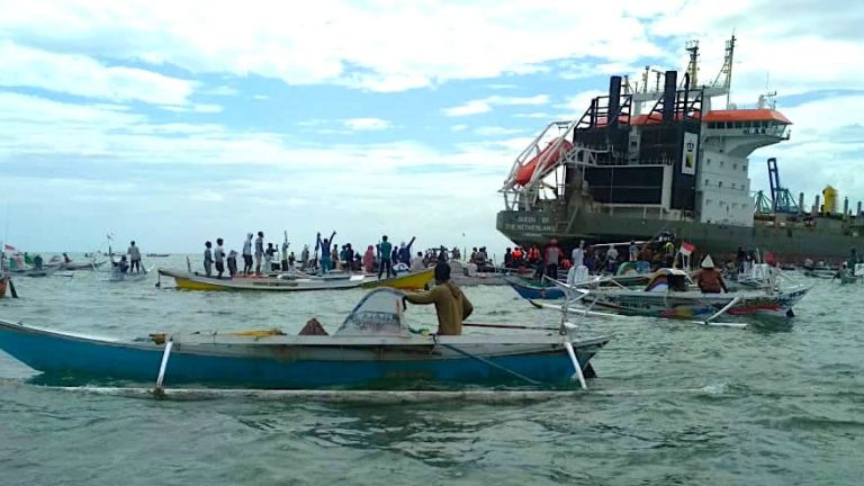Asia: The impact of activism on specific sectors
27 March 2023
In contrast with protesters in Europe and the Americas, activists in Asia are less prone to board vessels in the offshore and oil and gas sector, but rather have focused on protecting their fisheries and target operations that pose a threat to the fish stocks.
By Thomas Timlen, South-east Asia analyst
Unlike other regions, activities of activists in Asia that target the maritime shipping sector do not generate many headlines. Lately in the shipping press one activist activity that has recently been addressed are the strikes of shipyard workers in South Korea, some of whom have conducted hunger strikes and occupied vessels under construction. While such organised labour actions can indeed impact the productivity of specific yards, there is no impact on vessels trading to the country’s ports.
Meanwhile, environmentalist groups based in Europe and the Americas have caused delays and inconveniences by boarding vessels in transit and blocking vessels on their approaches to berths. In Asia, similar activity does take place but at a much lower frequency, and not involving the widely known environmental organisations, but rather this activity is undertaken on a grassroots basis and for the most part only by fishermen and their supporters. Furthermore, these incidents have been for the most part restricted to Indonesian waters, targeting only dredging operations and coal shipments.
The most recent activist activities targeting dredging operations took place in July 2021 off Bangka Island, Indonesia. An Indonesian dredger was surrounded by hundreds of fishermen and their supporters, who boarded and occupied the dredger in protest of the environmental impact that dredging and mining operations pose to the fishing sector. Negotiations between the protesters, local officials, police and the dredger operators ensued while the dredging operations were delayed.
One Cypriot hopper dredger has been the target of protesters twice in the waters off Makassar port. The first incident took place in July 2020 off Kodingareng Island in the Makassar Strait where the hopper dredger was surrounded by hundreds of local fishermen in outriggers, also joined by their supporters, who jointly blocked the movements of several vessels operating in the area. During the protest at least one Molotov cocktail was thrown by protesters onto the hopper dredger. In order to avoid a further escalation of violence, local authorities temporarily suspended dredging operations. Fortunately there were no injuries suffered by vessel crew or protesters. Following the events at sea, further demonstrations took place on land at local government offices.
Six months later in September, the same hopper dredger was operating within the Makassar Port limits when a substantial number of activists in small craft again tried to hinder the work. This time the activists threw stones and Molotov cocktails at the vessel causing minor fires on board. Several of the vessel's pneumatic cables were also cut. On this occasion the local authorities arrested twelve activists.
Indonesia’s port Balikpapan has been the site of similar protests, where fishermen have been organising protests against the coal trade. In June 2018 one such protest involved about 400 fishermen in 80 boats who blockaded the shipping lane used by coal-carrying barges, locally known as 'tongkang'. The protesters tied their boats to the barges and put banners on some of the pontoons, expressing their objection to the coal-loading activity that is seen as having a negative impact on the marine environment and subsequently fish stocks.
While environmental groups are active in Asia, organising forums and land-based initiatives that draw attention to their cause, to date they have not employed the tactics of their counterparts in other parts of the world that include taking to the water in speedboats to board, delay or deface merchant vessels. Looking ahead, it is not likely that this approach will change in the short-term.
LEARN MORE:
Want 24/7 access to unrivalled intelligence? Get a free trial of the Risk Intelligence System:
Sign up to get a two week unlimited free trial, providing access to all incidents, assessment reports and features from vessel or desktop. Get in touch now:

